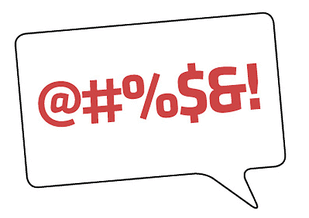Swearing on TV and radio is the subject of a new report by OFCOM, which takes a very detailed look (300 pages) at the attitdues of different sections of British society to a range of potentially offensive words. It's not just traditional swearwords like f***, sh*t and b*llocks that they focus on (beeped out here to avoid school and college nanny-filters banning the blog) but racial epithets and terms for disability.
The report itself (although I haven't read all 300 pages of it) seems very interesting, with some quite subtle distinctions made between audiences, based on age, ethnicity, gender, whether or not they're parents, etc. and it shows that attitudes are generally softening to some swear words, while for some age groups certain swear words no longer carry much sense of taboo.
The Guardian covered it here yesterday and The Daily Mail got really p*ssed off here, starting a heated debate here too. While swearing is clearly neither big nor clever, it's often lots of good fun and educational too. Looking at changing attitudes to swearing is a good way of looking at language change and thinking about the main reasons for why social changes are reflected in language usage.
Follow EngLangBlog on Bluesky
The old Twitter account has been deleted (because of both the ennazification and enshittification of that site) so is now running on Bluesk...

-
As part of the Original Writing section of the NEA, students will be required to produce a commentary on their piece. This blog post will pr...
-
As lots of students are embarking on the Language Investigation part of the Non-Exam Assessment, I thought it might be handy to pick up a fe...
-
When Dan asked what he should post about next on this blog, one of the most common responses was this, the World Englishes topic. Maybe ...

